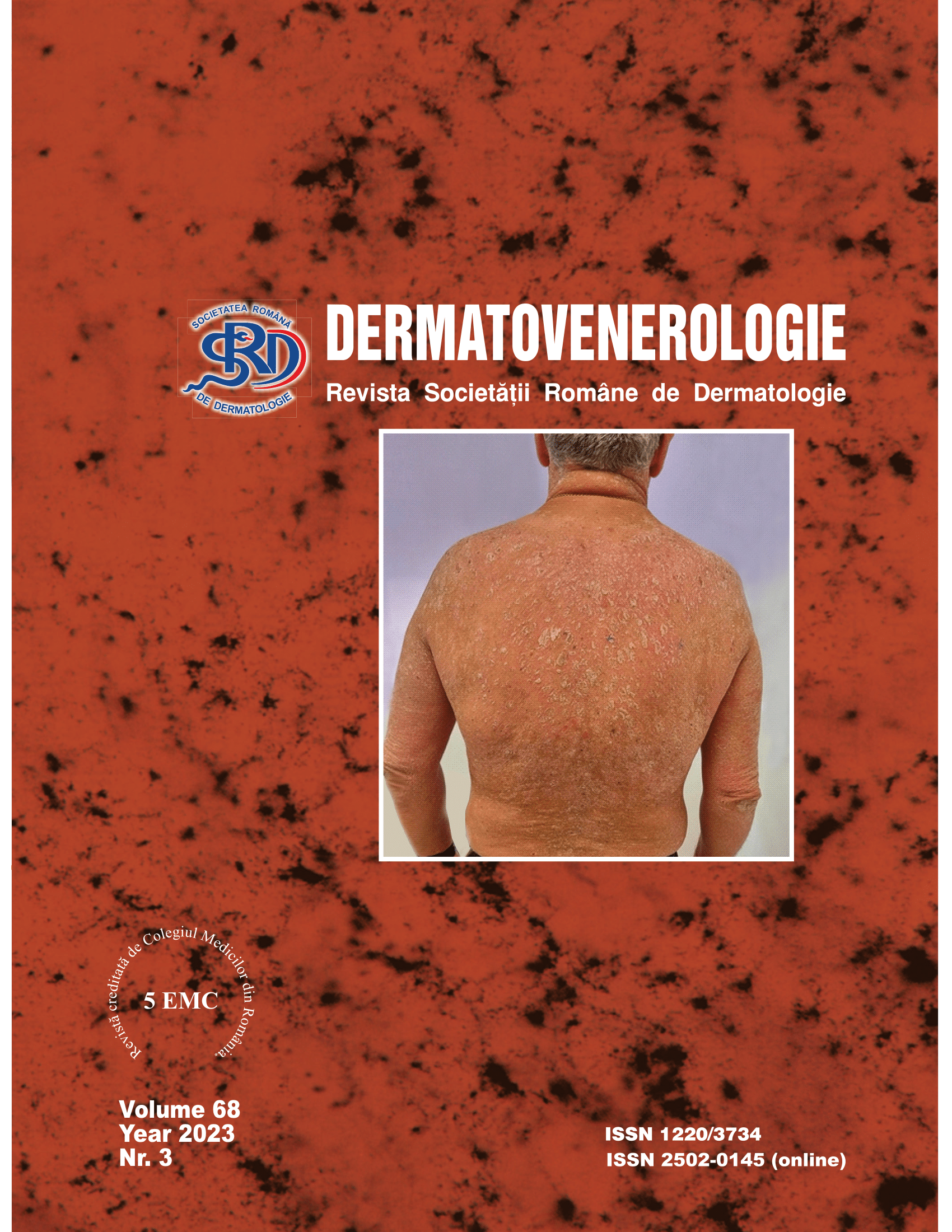Summary
Psoriatic disease is a chronic inflammatory disease with a serious impact on the health of affected individuals. The mechanisms of the disease involve local but also systemic inflammatory changes. Apremilast is a selective oral phosphodiesterase 4 (PDE4) inhibitor, which regulates many inflammatory mediators involved in the pathogenesis of psoriatic disease, such as tumor necrosis factor (TNF alfa), interleukin 10 (IL-10) or interleukin 23 (IL-23), some of the most important interleukins in psoriasis.
Although there is currently a wide range of therapeutic options, starting from topical therapies and going to disease-modifying antirheumatic drugs (DMARDs), apremilast finds its indications both in common cases of moderate-severe psoriatic disease, but more importantly, in special cases of patients with psoriatic disease who are not eligible or have not responded to other therapies.


